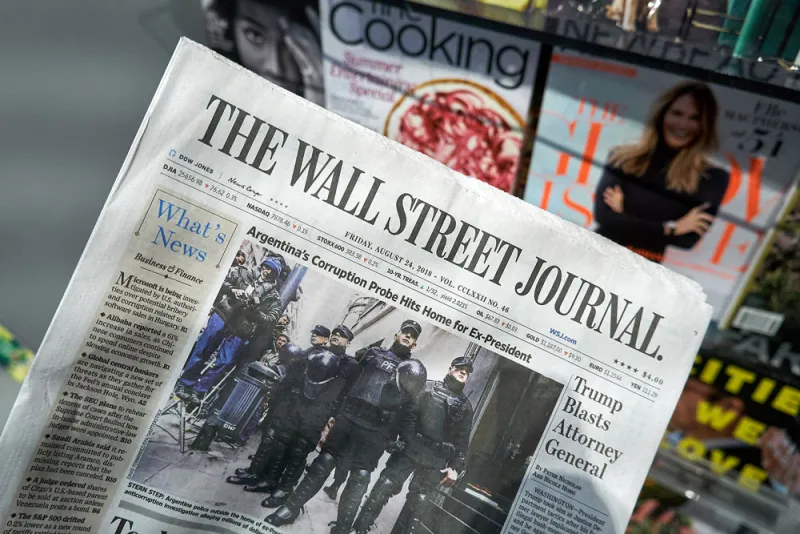Bridgewater Associates has once again accused Wall Street Journal reporter Rob Copeland of having “distorted the facts” about the hedge fund firm.
This latest dispute is over a Journal article published on Thursday reporting that Bridgewater’s director of research Karen Karniol-Tambour had made a formal complaint with the hedge fund’s leadership “after learning that she has earned less than some male counterparts.”
The story comes less than two months after the hedge fund’s former co-chief executive officer Eileen Murray filed a lawsuit alleging that Bridgewater withheld her deferred compensation after she disclosed their ongoing gender discrimination, unequal pay, and breach of contract dispute to the Financial Industry Regulatory Authority. Murray was recently tapped to become the chairperson of FINRA.
Bridgewater and its founder Ray Dalio claimed Monday that Copeland’s reporting was “inaccurate” in posts on Bridgewater’s website and Dalio’s LinkedIn profile.
“Intentional distortions to attract readers and viewers through sensationalism that harms others is one of the great diseases that is undermining the health of our country,” Dalio wrote.
According to Bridgewater, Copeland reached out to the company for comment on the story. They responded to Copeland that there “was no basis” for the story. After the story published, Bridgewater said that Karniol-Tambour was “shocked at the story’s inaccuracy.”
Wall Street Journal parent company Dow Jones stands by Copeland’s reporting.
"Rob Copeland is a well-respected journalist and his reporting on Bridgewater Associates is fair and accurate,” a spokesperson for the company said via email on Monday. “As always, responses from Bridgewater Associates were solicited well in advance of publication. Mr. Dalio is simply complaining about factual reporting he does not like.”
The Bridgewater post included an alleged text exchange between Copeland and Karniol-Tambour that shows she specifically took issue with the story’s implication that the compensation conversations were related to her gender.
“I did not make a claim of gender discrimination against Bridgewater,” Karniol-Tambour reportedly texted Copeland. “Your story suggests otherwise and is inaccurate.”
According to Bridgewater, Copeland responded that the story did not specifically say the Bridgewater executive “made a claim of gender discrimination.” In the Journal article, Copeland reported that Karniol-Tambour “asserted that men with similar or lesser responsibilities have been paid more.”
In addition to the text exchange, Bridgewater also published an email it said Karniol-Tambour sent to the company’s employees. In the email, Karniol-Tambour reiterated her concerns with Copeland’s story, emphasizing that she has “not made a claim of gender discrimination against Bridgewater.”
[II Deep Dive: The Wall Street Journal Has Irked Ray Dalio — Again]
This is not the first time Bridgewater has publicly disputed Copeland’s reporting. In 2017, Copeland and a fellow reporter, Bradley Hope, reported that the firm was attempting to automate most of its investment process. Dalio responded with a nearly 2,700-word LinkedIn post claiming that their article represented the “epidemic” of “fake and distorted media.”
In February, Dalio published another post on LinkedIn criticizing the reporting process Copeland and his co-author Rachel Levy used for their story, “Ray Dalio Is Still Driving His $160 Billion Hedge-Fund Machine.”
Both times, Dow Jones stood by the reporting.
A spokesperson for Bridgewater said via email that three years ago, the company hired outside counsel and independent pay equity experts to conduct annual audits designed to ensure pay equity at the company. The spokesperson added that the firm identified and addressed discrepancies following those audits.
“As of our annual audit in December 2019, we can confirm there are no outstanding discrepancies in how men and women are paid at Bridgewater — meaning all identified discrepancies were resolved either by adjusting pay for the relevant individual or investigating the discrepancy and determining there was a valid (i.e. job-related) underlying reason for the initial discrepancy,” the spokesperson said.







